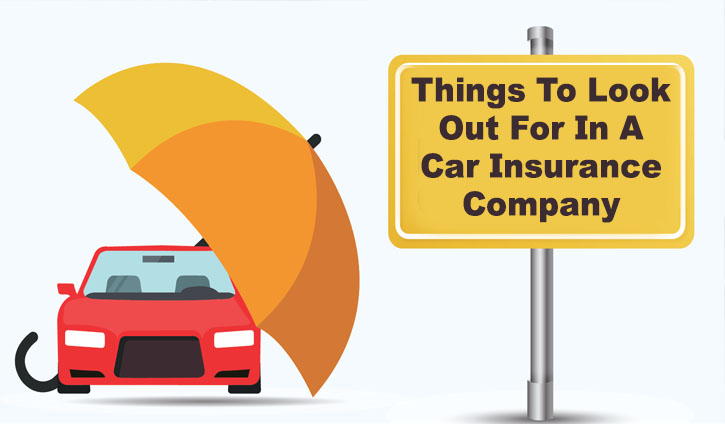Accidents are unpredictable and can result in unexpected medical expenses, temporary or permanent disability, and financial strain. To mitigate these risks, many individuals opt for accident insurance, which provides financial support in the event of accidents resulting in injuries. Choosing the best accident insurance provider requires careful consideration of various factors, including coverage options, policy terms, premiums, and customer service. In this comprehensive guide, we delve into what accident insurance entails, key considerations when selecting a provider, types of coverage available, and practical tips to help you make an informed decision.
Understanding Accident Insurance
Accident insurance, also known as personal accident insurance or accident health insurance, is a type of supplemental insurance that provides financial benefits to policyholders in the event of accidental injuries. Unlike health insurance, which covers a wide range of medical expenses, accident insurance specifically focuses on injuries resulting from accidents, such as falls, car accidents, sports injuries, or other unforeseen events.
- Coverage Benefits:
- Medical Expenses: Covers hospitalization, emergency room visits, surgery, medical treatments, and other healthcare services related to the accident.
- Income Protection: Provides a lump sum or periodic payments to compensate for lost income due to temporary or permanent disability resulting from the accident.
- Additional Benefits: Some policies may offer benefits for rehabilitation, physical therapy, transportation costs, and modifications to the home or vehicle to accommodate disabilities.
- Supplemental Nature: Accident insurance is designed to complement existing health insurance coverage by filling gaps in coverage and providing additional financial support for accident-related expenses not covered by primary health insurance.
Key Considerations When Choosing an Accident Insurance Provider
Selecting the best accident insurance provider involves evaluating several factors to ensure the policy meets your needs and provides adequate financial protection in the event of an accident:
- Coverage Options:
- Comprehensive Coverage: Look for policies that offer broad coverage for a wide range of accidents and injuries, including accidents at home, work, or while participating in recreational activities.
- Specific Coverage Needs: Consider your lifestyle, occupation, and recreational activities to determine if the policy covers specific types of accidents relevant to your circumstances.
- Policy Terms and Conditions:
- Exclusions: Review the policy’s exclusions to understand what is not covered, such as pre-existing conditions, certain high-risk activities, or injuries resulting from illegal activities.
- Waiting Periods: Determine if the policy has waiting periods before coverage becomes effective, especially for certain benefits like disability income protection.
- Premiums and Cost:
- Affordability: Compare premium rates from different insurers to find a policy that fits within your budget while providing adequate coverage.
- Premium Structure: Understand how premiums are calculated (e.g., based on age, occupation, coverage limits) and whether premiums are fixed or subject to adjustments over time.
- Claim Process and Customer Service:
- Claims Handling: Research the insurer’s reputation for claims processing efficiency, responsiveness, and transparency.
- Customer Reviews: Read customer reviews and testimonials to gauge overall satisfaction with the insurer’s customer service and claims experience.
- Financial Stability and Reputation:
- Insurance Provider Ratings: Check the financial strength ratings and reputation of the insurance company from independent rating agencies like A.M. Best, Moody’s, or Standard & Poor’s.
- Longevity: Consider insurers with a strong track record and longevity in the insurance industry, as this can indicate stability and reliability in fulfilling policy obligations.
Types of Accident Insurance Coverage
Accident insurance policies vary in terms of coverage options and benefits. Common types of coverage include:
- Accidental Death and Dismemberment (AD&D):
- Provides a lump sum benefit in the event of accidental death or loss of limbs or eyesight due to an accident.
- Benefits are typically paid to the insured or designated beneficiaries to provide financial support in the aftermath of a serious accident.
- Accident Medical Expense (AME):
- Covers medical expenses resulting from accidental injuries, including hospitalization, surgery, doctor visits, and prescription medications.
- Helps offset out-of-pocket costs not covered by primary health insurance, such as deductibles, copayments, and non-network medical expenses.
- Disability Income Protection:
- Provides financial compensation if the insured becomes temporarily or permanently disabled due to an accident and is unable to work.
- Benefits may be paid as a monthly income replacement or a lump sum based on the severity of the disability.
- Hospital Confinement Benefit:
- Pays a daily or weekly benefit for each day the insured is hospitalized due to injuries sustained in an accident.
- Helps cover additional expenses associated with hospitalization, such as transportation, lodging for family members, and incidental costs.

Practical Tips for Choosing the Best Accident Insurance Provider
To navigate the selection process effectively and choose a reputable accident insurance provider, consider the following practical tips:
- Assess Your Coverage Needs:
- Evaluate your current health insurance coverage and identify gaps or limitations that accident insurance can help address.
- Consider your lifestyle, occupation, and recreational activities to determine the types of accidents and injuries most relevant to your insurance needs.
- Compare Multiple Quotes:
- Request quotes from several insurers to compare premiums, coverage options, deductibles, and policy terms.
- Use online comparison tools or work with an insurance broker to streamline the process and ensure you receive competitive offers.
- Read the Fine Print:
- Thoroughly review the terms and conditions of each policy, including exclusions, limitations, coverage triggers, and claim procedures.
- Pay attention to any provisions related to pre-existing conditions, waiting periods, and renewal terms to avoid surprises in the event of an accident.
- Seek Recommendations and Reviews:
- Ask for recommendations from family, friends, or colleagues who have experience with accident insurance providers.
- Research online reviews and testimonials to gauge customer satisfaction and the insurer’s reputation for reliability and customer service.
- Consult with Insurance Professionals:
- Consider consulting with an insurance agent, broker, or financial advisor who specializes in accident insurance to obtain expert guidance.
- An insurance professional can help clarify complex policy details, answer questions, and provide personalized recommendations based on your specific needs and preferences.
- Review and Update Regularly:
- Periodically review your accident insurance coverage to ensure it continues to meet your evolving needs and financial circumstances.
- Update your policy as necessary to accommodate changes in lifestyle, occupation, or other factors that may impact your insurance requirements.
Conclusion
Choosing the best accident insurance provider requires careful consideration of coverage options, policy terms, premiums, and customer service quality. By assessing your coverage needs, comparing quotes from multiple insurers, and thoroughly reviewing policy details, you can make an informed decision that provides financial protection and peace of mind in the event of accidental injuries. Remember to consult with insurance professionals and regularly review your accident insurance coverage to ensure it aligns with your long-term financial goals and provides the support you need during unexpected circumstances. With these considerations in mind, you can navigate the process of selecting an accident insurance provider confidently and effectively.
